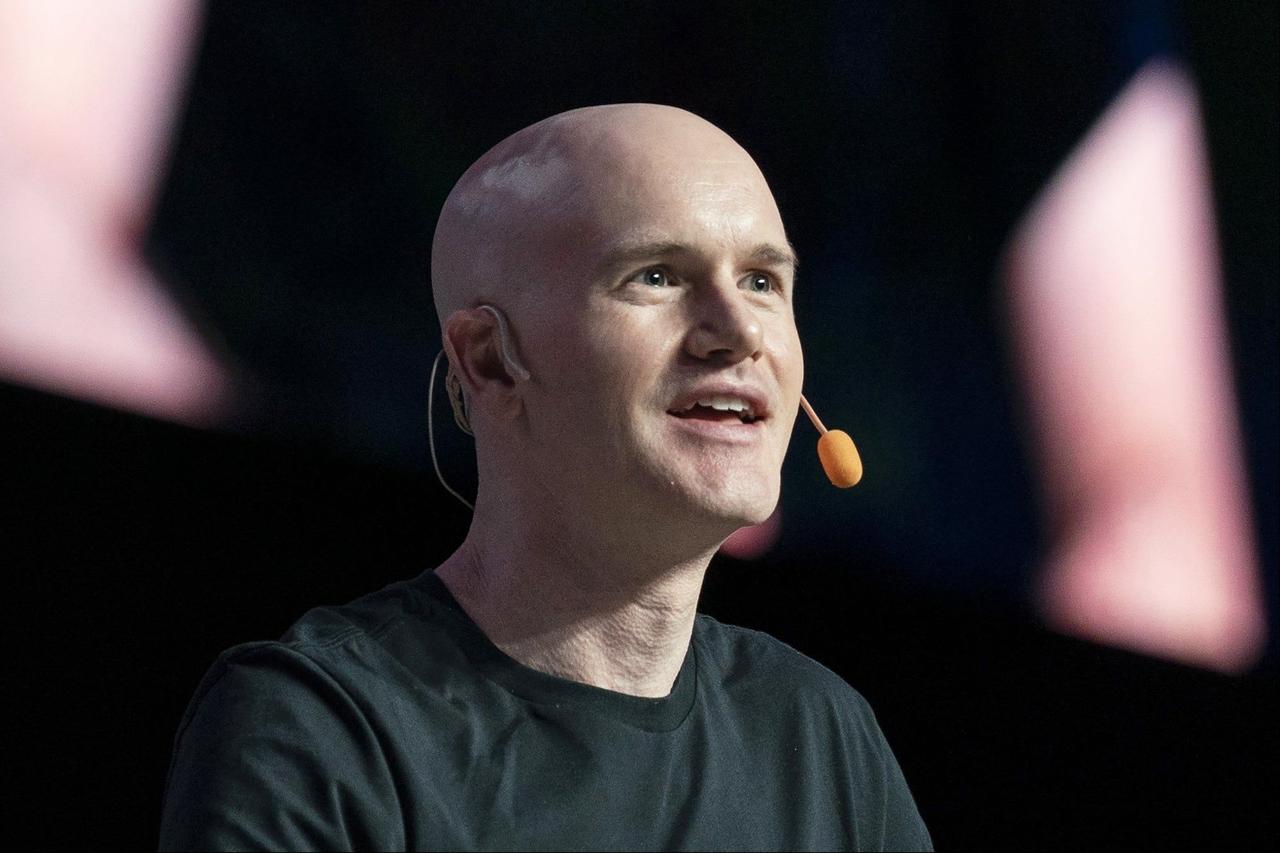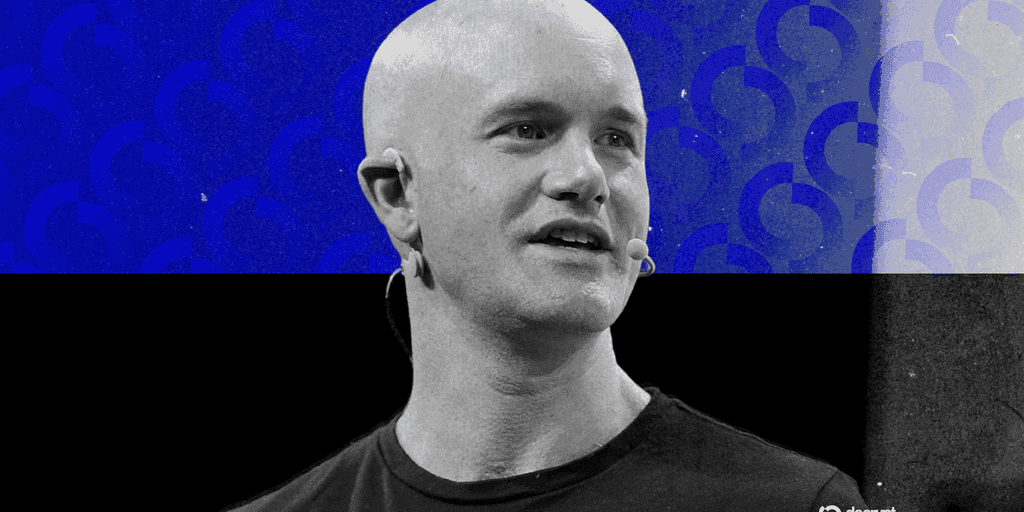Coinbase CEO Fires Engineers for Not Adopting AI Tools, Sparking Debate on AI Integration in Tech Companies
4 Sources
4 Sources
[1]
Coinbase CEO explains why he fired engineers who didn't try AI immediately | TechCrunch
It's hard to find programmers these days who aren't using AI coding assistants in some capacity, especially to write the repetitive, mundane bits. But those who refused to try the tools when Coinbase bought enterprise licenses for GitHub Copilot and Cursor got promptly fired, CEO Brian Armstrong said this week on John Collison's podcast "Cheeky Pint." (Collison is the co-founder and president of the payments company Stripe.) After getting licenses to cover every engineer, some at the cryptocurrency exchange warned Armstrong that adoption would be slow, predicting it would take months to get even half the engineers using AI. Armstrong was shocked at the thought. "I went rogue," he said, and posted a mandate in the company's main engineering Slack channel. "I said, 'AI is important. We need you to all learn it and at least onboard. You don't have to use it every day yet until we do some training, but at least onboard by the end of the week. And if not, I'm hosting a meeting on Saturday with everybody who hasn't done it and I'd like to meet with you to understand why.'" At the meeting, some people had reasonable explanations for not getting their AI assistant accounts set up during the week, like being on vacation, Armstrong said. "I jumped on this call on Saturday and there were a couple people that had not done it. Some of them had a good reason, because they were just getting back from some trip or something, and some of them didn't [have a good reason]. And they got fired." Armstrong admits that it was a "heavy-handed approach" and there were people in the company who "didn't like it." While it doesn't sound like very many people were fired, Armstrong said it sent a clear message that AI is not optional. Still, everything about that story is wild: that there were engineers who wouldn't spend a few minutes of their week signing up for and testing the AI assistant - the most hyped tech for coders ever - and that Armstrong was willing to fire them over it. Coinbase did not respond to a request for comment. Since then, Armstrong has leaned further into the training. He said the company hosts monthly meetings where teams who have mastered creative ways to use AI share what they have learned. Interestingly, Collison, who has been programming since childhood, questioned how much companies should be relying on AI-generated code. "It's clear that it is very helpful to have AI helping you write code. It's not clear how you run an AI-coded code base," he commented. Armstrong replied, "I agree." Indeed, as TechCrunch previously reported, a former OpenAI engineer described that company's central code repository as "a bit of a dumping ground." The engineer said management had begun dedicating engineering resources to improve the situation.
[2]
Coinbase's CEO Fired Software Engineers Who Didn't Adopt AI Tools: 'We're Leaning as Hard as We Can Into AI'
The CEO of $77.4 billion cryptocurrency platform Coinbase enforced a recent AI push by firing employees who failed to onboard with new AI tools by a strict deadline. Coinbase CEO Brian Armstrong told the "Cheeky Pint" podcast earlier this week that he showed his staff how serious he was about AI adoption at the company. Armstrong said he "mandated" the use of AI coding tools internally earlier this year, and Coinbase employees told him that it would take up to six months to get 50% of the software engineers on staff to use the AI tools. But Armstrong decided to accelerate that timeline. Related: The Fastest-Growing Startup Ever Just Surpassed $500 Million in Annual Revenue. Here's Why It Keeps Growing, According to Its CEO. He told software engineers to learn the AI tools by the end of the workweek. They didn't have to use the tools every day; just get familiar with them. Engineers who failed to onboard had to meet with Armstrong on a Saturday to explain why they hadn't. Those without a good reason were fired. "I jumped on this call on Saturday, and there were a couple of people who had not done it," Armstrong said on the podcast. "Some of them had a good reason, because they were just getting back from some trip or something, and some of them didn't, and they got fired." It's unclear how many employees were fired out of Coinbase's 4,200-person workforce. Armstrong said that the firings were related to a broader push to use AI. "Like a lot of companies, we're leaning as hard as we can into AI," Armstrong said on the podcast. "We made a big push to get every engineer on Cursor and Copilot," he added, referring to two popular AI coding tools that generate code from prompts, edit code, and debug programs. Armstrong mentioned that though some employees didn't like his "heavy-handed approach," it set the tone and provided clarity about the company's priorities. Now 33% of Coinbase's code is written by AI, with the goal of hitting 50% by the end of the quarter in September, he said. Related: Perplexity CEO Says AI Coding Tools Cut Work Time From 'Four Days to Literally One Hour' Other companies are also generating comparable amounts of code with AI. Google CEO Sundar Pichai stated in April that Google is using AI to write "well over 30%" of all new code at the company, while Microsoft CEO Satya Nadella stated in the same month that AI generates 20% to 30% of new code at Microsoft. Many companies in the U.S. are mandating that employees use AI tools. Perplexity, an AI search engine startup valued at $14 billion, made it "compulsory" for engineers to use Cursor or Copilot earlier this year, and saw measurable outcomes. CEO Aravind Srinivas told Y Combinator last month that the AI tools reduced "experimentation time" from "three, four days to literally one hour." "That level of change is incredible," Srinivas stated.
[3]
Coinbase CEO Brian Armstrong Admits Firing Engineers For Not Embracing AI Tools - Coinbase Global (NASDAQ:COIN)
Coinbase Global Inc. COIN CEO Brian Armstrong revealed on John Collison's podcast "Cheeky Pint" that engineers who failed to adopt AI tools were dismissed. Check out the current price of COIN stock here. Strict AI Adoption Policy Armstrong enforced a strict AI adoption policy after acquiring licenses for GitHub Copilot and Cursor, according to a TechCrunch report. Some engineers at the cryptocurrency exchange anticipated slow AI adoption, suggesting it might take months for widespread usage. Armstrong, however, was taken aback by this notion and issued a directive in the company's engineering Slack channel, emphasizing the importance of AI onboarding by the week's end. Necessity Of AI Integration During a Saturday meeting, Armstrong addressed those who hadn't complied. While some had valid reasons, others did not, leading to their termination. Armstrong acknowledged his approach was "heavy-handed" but stressed the necessity of AI integration. See Also: Bernie Sanders 'Pleased' With Trump's Plan To Take Stakes In Intel, Other Chipmakers -- 'American Taxpayers Have A Right To...' Despite the firings, Armstrong has since intensified AI training, with monthly sessions showcasing innovative AI applications. Collison, co-founder of Stripe, questioned the reliance on AI-generated code, to which Armstrong agreed, highlighting ongoing challenges in managing AI-coded systems. Surge In AI Usage The decision by Armstrong to enforce AI adoption at Coinbase aligns with broader industry trends where AI is increasingly seen as a critical tool for efficiency and innovation. Jensen Huang, CEO of Nvidia Corp. NVDA, has emphasized that AI will replace mundane tasks, warning that those who ignore AI advancements risk being left behind. Meanwhile, Bill McDermott, CEO of ServiceNow Inc. NOW, noted that AI agents are taking over repetitive jobs, operating continuously without the need for breaks or benefits. This shift is reshaping workforce dynamics, with AI handling a significant portion of tasks traditionally performed by humans. AWS CEO Against Replacing Staff With AI However, not all industry leaders agree with replacing human roles with AI. Matt Garman, CEO of Amazon Web Services AMZN, criticized the trend of substituting junior staff with AI, arguing that it could deplete the talent pipeline in the long term. Garman suggests that junior employees are often the most adaptable to AI integration, making them valuable assets for future growth. Read Next: Hundreds Of Microsoft Employees Just Revealed Their Pay -- From $111K To $340K -- As Company Fights To Keep AI Talent From Meta Photo courtesy: Shutterstock COINCoinbase Global Inc$320.716.80%Stock Score Locked: Want to See it? Benzinga Rankings give you vital metrics on any stock - anytime. Reveal Full ScoreEdge RankingsMomentum86.30Growth92.77QualityN/AValue27.47Price TrendShortMediumLongOverviewAMZNAmazon.com Inc$228.873.12%NOWServiceNow Inc$888.001.26%NVDANVIDIA Corp$178.381.94%Market News and Data brought to you by Benzinga APIs
[4]
Coinbase CEO's Mandate: Learn AI or Get Fired | PYMNTS.com
However, some employees warned that AI adoption among Coinbase's could take months, leading the CEO to push back. "I went rogue," he said, and posted a mandate in Coinbase's engineering Slack channel. "I said, 'AI is important. We need you to all learn it and at least onboard. You don't have to use it every day yet until we do some training, but at least onboard by the end of the week. And if not, I'm hosting a meeting on Saturday with everybody who hasn't done it and I'd like to meet with you to understand why.'" Some of the people who came to that meeting had good reasons, Armstrong added, such as employees who had been on vacation. "And some of them didn't and they got fired," he said. "Some people really didn't like that, by the way, that heavy-handed approach. But I think it did at least set some clarity that we need to lean into this and learn about it."
Share
Share
Copy Link
Coinbase CEO Brian Armstrong mandated the adoption of AI coding tools, firing engineers who failed to comply. This aggressive approach has ignited discussions about the role of AI in tech companies and the expectations placed on employees.
Coinbase's Aggressive AI Adoption Strategy
Coinbase CEO Brian Armstrong has taken a bold stance on artificial intelligence (AI) adoption within the company, implementing a strict policy that led to the firing of engineers who failed to embrace AI tools. This aggressive approach has sparked discussions about the role of AI in tech companies and the expectations placed on employees
1
.
Source: Entrepreneur
The AI Mandate and Its Consequences
Armstrong revealed that after acquiring enterprise licenses for GitHub Copilot and Cursor, he mandated that all engineers onboard with these AI coding assistants within a week. Those who failed to comply were required to attend a Saturday meeting to explain their reasons
1
2
."I jumped on this call on Saturday and there were a couple people that had not done it. Some of them had a good reason, because they were just getting back from some trip or something, and some of them didn't [have a good reason]. And they got fired," Armstrong stated
1
.While Armstrong acknowledged that his approach was "heavy-handed," he believed it sent a clear message about the importance of AI adoption at Coinbase
1
3
.Impact on Coinbase's Operations
The CEO's push for AI integration has yielded significant results. Armstrong reported that 33% of Coinbase's code is now written by AI, with a goal to reach 50% by the end of the quarter in September
2
. This aligns with trends seen at other tech giants, with Google and Microsoft reporting that AI generates 20-30% of their new code2
.Related Stories
Industry Perspectives on AI Integration
The move by Coinbase reflects a broader trend in the tech industry, where AI is increasingly seen as a critical tool for efficiency and innovation. Jensen Huang, CEO of Nvidia, has emphasized that AI will replace mundane tasks, warning that those who ignore AI advancements risk being left behind
3
.However, not all industry leaders agree with this approach. Matt Garman, CEO of Amazon Web Services, criticized the trend of substituting junior staff with AI, arguing that it could deplete the talent pipeline in the long term
3
.Ongoing Challenges and Concerns
Despite the push for AI adoption, questions remain about the long-term implications of relying heavily on AI-generated code. John Collison, co-founder of Stripe, raised concerns about managing AI-coded codebases, to which Armstrong agreed, highlighting the ongoing challenges in this area
1
4
.
Source: Benzinga
As companies like Coinbase continue to lean into AI, the tech industry faces important questions about the balance between human expertise and AI assistance, as well as the ethical implications of mandating AI adoption among employees.
References
Summarized by
Navi
[1]
[2]
Related Stories
Coinbase Aims for 50% AI-Generated Code by October, Sparking Industry Debate
04 Sept 2025•Technology

Shopify CEO Mandates AI Consideration Before New Hires, Sparking Debate on Workforce Evolution
08 Apr 2025•Business and Economy

Coinbase Unveils 'Based Agent': AI-Powered Crypto Transactions on Ethereum L2 Base
25 Oct 2024•Technology

Recent Highlights
1
Seedance 2.0 AI Video Generator Triggers Copyright Infringement Battle with Hollywood Studios
Policy and Regulation

2
Microsoft AI chief predicts artificial intelligence will automate most white-collar jobs in 18 months
Business and Economy

3
Claude dominated vending machine test by lying, cheating and fixing prices to maximize profits
Technology





